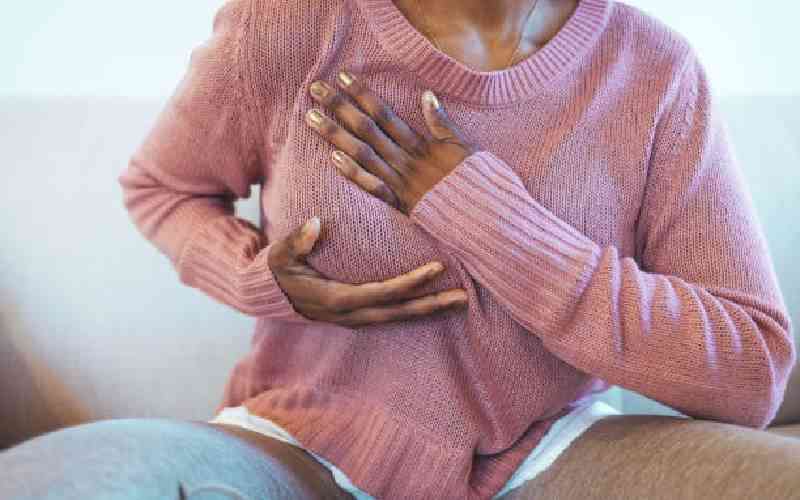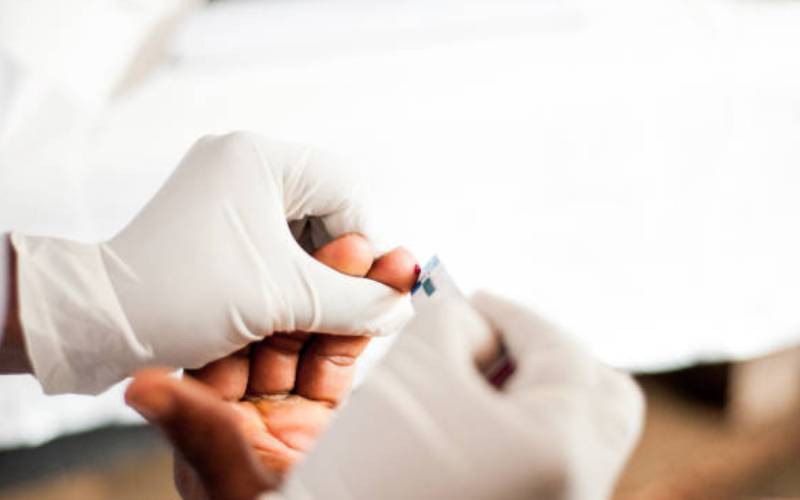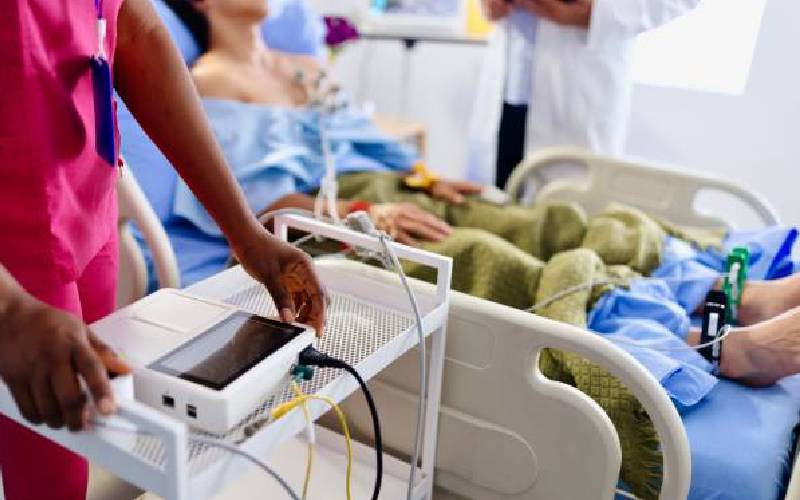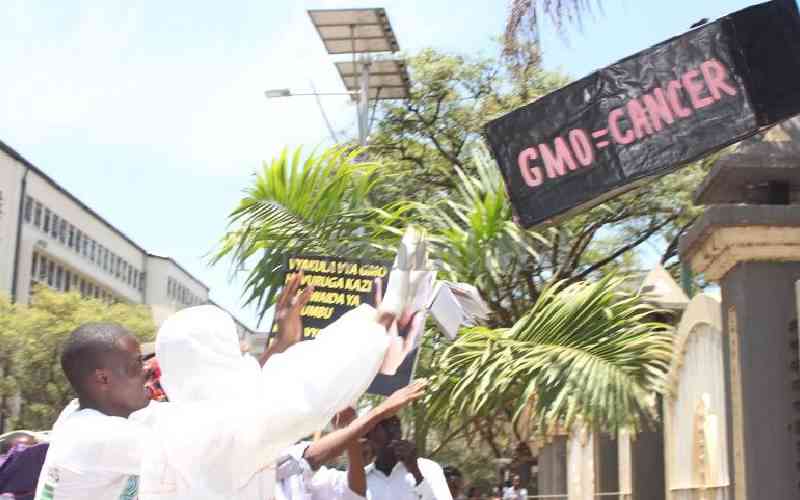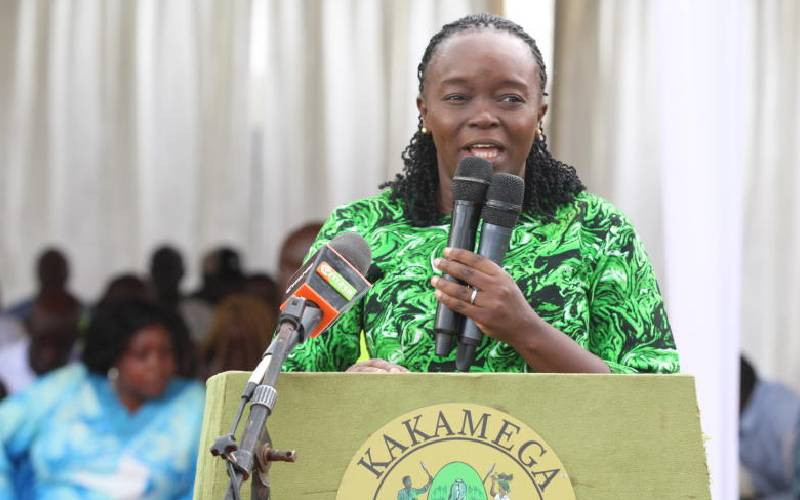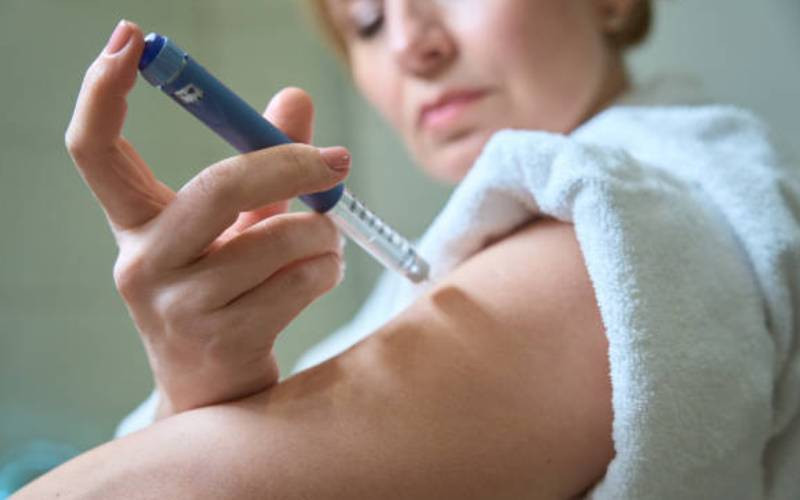
Kenya's reproductive health services got a major boost after receiving 450,000 doses of self-injectable contraceptives.
The Subcutaneous Depot Medroxyprogesterone Acetate (DMPA-SC) contraceptives, procured by the United Nations Population Fund (UNFPA) through Sh57 million contribution from the UK government, will be made available at health facilities across the country through the Ministry of Health.
The user-friendly DMPA-SC injectable contraceptive can be administered by trained individuals, including community health workers and women themselves, thus expanding family planning access beyond the traditional healthcare settings.
This initiative aligns with Kenya's broader strategy to promote reproductive health self-care and enhance service delivery.
During the handover ceremony at the Kenya Medical Supplies Authority (Kemsa) warehouse in Nairobi, Acting Director General of Health Patrick Amoth, underscored the significance of integrating DMPA-SC self-injection contraceptive into the country's reproductive health landscape.
"These contraceptives will bolster the Government's efforts to increase access to family planning in line with global trends towards self-care interventions," Dr Amoth said.
While Kenya has made notable progress in promoting family planning, barriers such as high costs and supply uncertainties continue to impede efforts to meet the demand for these services. Meanwhile, the current modern contraceptive prevalence rate has risen to 57 per cent in 2022 from 53 per cent in 2014.
- Ministry plans to better reproductive services for youth
- Contraceptives do not cause cancers or infertility, says doctor
- How social norms hinder uptake of contraceptives among youth
Keep Reading
The unmet need for family planning remains at 14 per cent, prompting the government to prioritise reducing the gap with a target of modern contraceptive prevalence rate of 64 per cent by 2030
Eduarda Mendonca-Gray, Deputy Development Director at the British High Commission, highlighted the UK's unwavering commitment to supporting sexual and reproductive health and rights in Kenya.
"The evidence is clear – access to and availability of family planning commodities reduces poverty, enhance prosperity, and provide dignity for women," she said, pledging continued collaboration to empower women to plan their lives and families according to their choices.
UNFPA Representative Anders Thomsen emphasized the pivotal role of the UK government's funding in ensuring Kenyan women have access to a wide range of quality family planning methods nationwide.
"Funding for the family planning programme is a vital component of the support we receive from the UK government, as it ensures that women can access and choose from a range of quality family planning methods, no matter where they live in the country," Thomsen said, adding, "this in many ways helps us deliver on the commitment to end preventable maternal deaths."
The donated DMPA-SC contraceptives are expected to benefit more than 400,000 women of reproductive age, contributing to the prevention of 42,750 unintended pregnancies and 122 maternal deaths.
The contraceptives will be distributed through Kmsa, with the government co-financing storage and distribution costs.
In 2023, UNFPA supported the Ministry of Health in expanding access to family planning commodities and services by procuring a range of family planning methods distributed to more than 6,000 health facilities across 47 counties. These served more than 2.5 million women of reproductive age.
The UK government has been a longstanding partner of UNFPA and the Government of Kenya in efforts to ensure women and girls have access to sexual and reproductive health information and services.
 The Standard Group Plc is a multi-media organization with investments in media platforms spanning newspaper print
operations, television, radio broadcasting, digital and online services. The Standard Group is recognized as a
leading multi-media house in Kenya with a key influence in matters of national and international interest.
The Standard Group Plc is a multi-media organization with investments in media platforms spanning newspaper print
operations, television, radio broadcasting, digital and online services. The Standard Group is recognized as a
leading multi-media house in Kenya with a key influence in matters of national and international interest.


